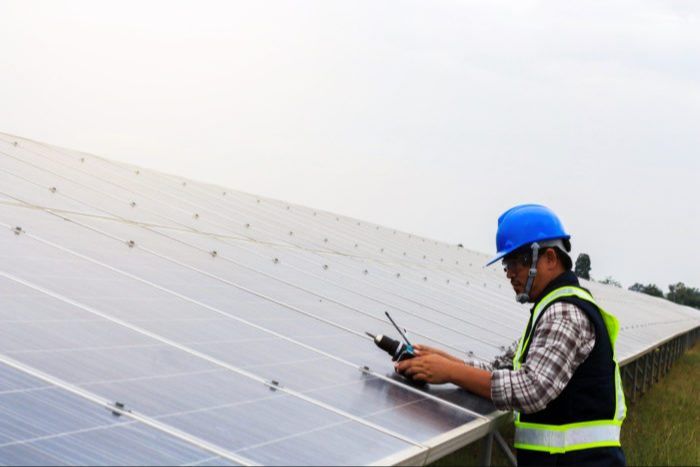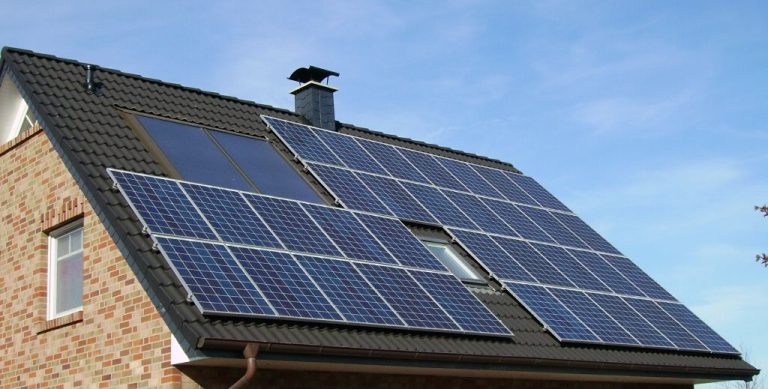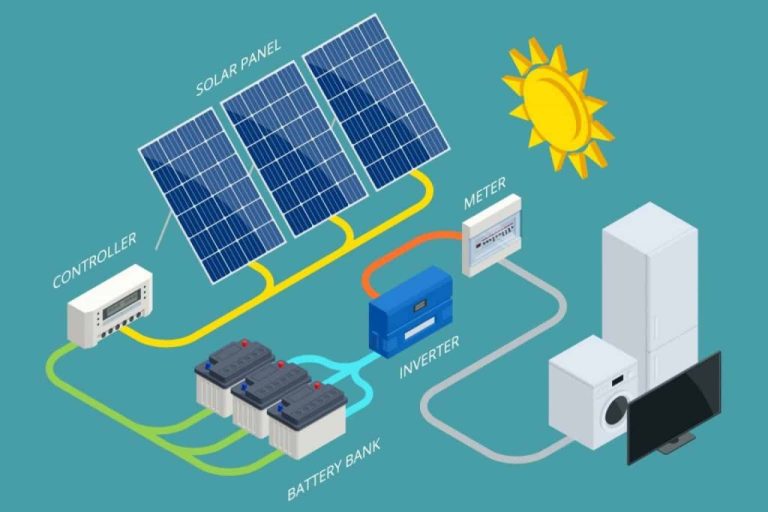What Is The Highest Salary For A Solar Technician?

Solar technicians are professionals who install, maintain, and repair solar energy systems. Their role is critical in supporting the adoption of renewable energy. As demand for solar power rises, there is increasing need for qualified solar technicians to deploy photovoltaic systems on homes and businesses.
Solar technicians typically have backgrounds in electrical, construction, or mechanical trades. Their day-to-day work involves assessing sites, installing solar panels, wiring systems, performing maintenance, and troubleshooting issues. The goal of their work is to ensure solar arrays operate efficiently to produce clean energy from sunlight.
Salary Range
The typical overall salary range for solar technicians in the United States is $45,000 to $85,000 per year. According to Salary.com, the average solar technician salary is $66,062 as of January 2024, with most salaries falling between $58,661 and $77,359. ZipRecruiter reports an average hourly wage of $27.72 for solar technicians as of February 2024. The salary range can vary depending on factors like location, experience level, certifications, and company size.
Highest Salaries
According to ZipRecruiter, solar panel technicians in Santa Clarita, California have some of the highest average salaries in the nation at $86,696 per year. Los Angeles, CA also ranks highly for solar installer salaries with an average of $56,234 per year (Source).
Data from Indeed.com shows that some of the highest paying cities for solar installers are Los Angeles, CA, New York, NY, and San Francisco, CA, where salaries can reach $90,000 or more annually. Nevada and Alaska also offer high salaries for solar technicians and installers, with average earnings of $55,000-65,000 in cities like Las Vegas and Anchorage (Source 1, Source 2).
Experience Level
An experienced solar technician can earn significantly higher pay than an entry-level technician. According to ZipRecruiter, the average hourly wage for an entry-level solar technician with less than 1 year of experience is $19.01 per hour, while a mid-career technician with 5-9 years of experience can earn around $30.43 per hour. The most experienced solar technicians with 20 or more years on the job have an average hourly wage of $36.92. Clearly, gaining years of hands-on experience installing, maintaining, and repairing solar energy systems can boost a technician’s earning potential quite substantially over the course of their career.
Some key factors that allow more experienced solar technicians to command higher salaries include:
- In-depth knowledge of solar system components, construction, installation, maintenance, and safety protocols
- Ability to accurately diagnose and resolve complex system issues
- Project management and leadership skills
- Familiarity with building codes, permitting, and regulations
- Established professional network and reputation
Certifications
Certifications can significantly increase a solar technician’s salary. According to research by the Solar Energy Industries Association (SEIA), certified solar technicians earn higher wages than their non-certified counterparts. Some of the most popular solar certifications include:
- NABCEP PV Associate Certification – Earning the associate level certification from the North American Board of Certified Energy Practitioners (NABCEP) can boost salary by 5-10%. The median salary for NABCEP certified solar technicians is $72,597 per year (Source: https://www.nabcep.org).
- OSHA 10 Hour Construction Training – Having the basic OSHA 10 safety certification shows knowledge of worksite hazards and safety procedures. This can increase starting salary offers by 5% or more.
- Manufacturer Certifications – Many top solar panel manufacturers like SolarEdge and Enphase offer product training and certifications. Technicians with specific system expertise tend to earn higher wages and are more likely to be hired.
Investing in a certification shows commitment to the solar industry and continuing education. Certified technicians have proven knowledge and skillsets that translate into higher earnings and increased job opportunities.
Company Size
Data shows that larger companies tend to pay solar technicians higher salaries than smaller companies. For example, according to https://www.zippia.com/solar-technician-jobs/demographics/, solar technicians at companies with over 1000 employees had an average salary of $47,406. Meanwhile, solar technicians at companies with less than 100 employees averaged $38,406. This trend makes sense, as larger companies generally have more resources to pay higher wages. Additionally, senior or specialized solar technician roles are more likely found at big corporations. Therefore, those interested in maximizing their salary as a solar technician may want to target positions at larger, established companies.
Education Level
The education level attained by a solar technician has a significant impact on salary. According to Salary.com, solar technicians with a high school diploma earn an average salary of $57,379, while those with an associate’s degree earn $67,245. Technicians who hold a bachelor’s degree in engineering or a related field can expect to earn an average of $78,912.
Higher levels of education allow solar technicians to take on more responsibilities and leadership roles. Those with engineering degrees are qualified for advanced design and project management positions. Completing vocational training or an apprenticeship program beyond high school is essential for developing the hands-on skills needed to install, maintain, and repair solar energy systems. Formal education combined with on-the-job training produces the highest paid solar technicians.
Overall, the data shows that solar technicians with postsecondary education credentials earn significantly higher salaries than those with just a high school diploma. Investing in an associate’s degree, bachelor’s degree, or technical certification can boost earnings potential in this growing field.
Responsibilities
The responsibilities of a solar technician can have a significant impact on salary. Technicians with a broader range of duties and more responsibilities typically command higher pay.
According to ZipRecruiter, solar technicians who are responsible for the full installation process including site evaluation, system design, permitting, installation, inspection, testing and activation can earn $30-$35 per hour. Those with responsibilities limited to just installation work typically earn $15-$25 per hour.
Technicians who take on crew lead or supervisory roles directing others on job sites also tend to earn higher wages in the range of $35-$45 per hour according to Salary.com. Their broader responsibilities justify the pay premium.
In general, solar technicians willing and able to handle a wider scope of duties and responsibilities can maximize their earning potential in the field.
Job Outlook
The job outlook for solar technicians is extremely positive and expected to grow rapidly over the next several years. According to the Bureau of Labor Statistics, employment of solar photovoltaic installers is projected to grow 63% from 2020 to 2030, much faster than the average for all occupations. This growth is driven by increasing demand for renewable energy sources like solar power (Source 1).
One report estimates the solar industry will triple in size over the next five years, leading to strong demand for qualified solar technicians (Source 2). Government tax incentives and favorable policies also continue to make solar power adoption more affordable for homeowners and businesses.
With the rising demand for solar panel installation and maintenance, solar technician roles are expected to be in high demand across the country. Those with proper training and certifications stand to benefit from excellent job prospects and career stability in this rapidly growing field.
Conclusion
In summary, the highest salaries for solar technicians tend to be around $80,000 per year. However, there are many factors that influence pay. Those with the most experience, certifications, and education can earn salaries on the higher end of the range. Technicians working for large utility companies also tend to earn more than those at smaller solar firms. The most skilled solar technicians who install and maintain large commercial systems are the highest paid. With the solar industry growing rapidly, there is strong demand for qualified technicians which also puts upward pressure on salaries.
While $80,000 represents the high end of the range, the average salary for solar technicians is closer to $44,000 per year. Overall, solar technician salaries are quite attractive relative to the minimal education requirements. Those who are willing to constantly upgrade their skills and knowledge can quickly earn substantially higher pay in this field.






